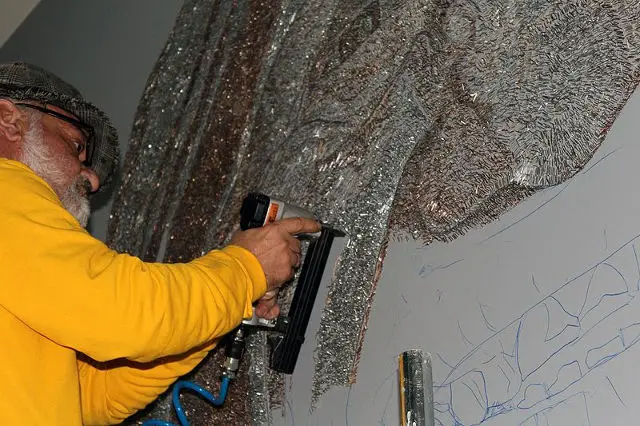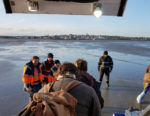Jonathan Dodd’s latest column. Guest opinion articles do not necessarily reflect the views of the publication. Ed
Ryde Library’s Junior Library is getting a make-over. A team of people, myself included, went in this week when the library was shut, and cleared the Junior Library room. This involved removing an enormous number of books from the shelves, then taking the shelves to pieces and moving them to a smaller space in the main library, wiping everything down, putting the shelves back, and then putting all the books back in the correct order. I’ve never done that before, and I was profoundly grateful for the Librarians present, who managed the whole process without a hitch. I was just helping.
It’s often the case that a large piece of work needs doing, and it’s all too easy to start without a plan and end up with a fearful mess. We could have pulled all the books off the shelves and piled them up on the floor, without realising that they’re sorted in a particular way. Fiction is alphabetised, maybe within genre, although some books defy genre, so it’s difficult to place them in a way that makes them easy to find. Publishers really like genre books, so they know how to market them. If your novel is just like one that has sold really well, you’re more likely to have it published, with a very similar cover, and a quote saying – “‘If you liked Book X, then you’ll love this!”
If it appears anywhere, that’s the icing on the cake
Many aspiring writers have to face this quandary. Do you follow your writer’s nose, and maybe produce a book that’s unpublishable because it doesn’t fit into a genre, or do you deliberately write something that’s genre-specific? All writers’ groups spend an inordinate amount of time discussing this very thing, without coming to any conclusions. I’m merely grateful if anything I write gets finished. If someone reads it, or it appears anywhere, that’s the icing on the cake. If somebody likes it, well, that’s enough to have me walking on air for a few days.
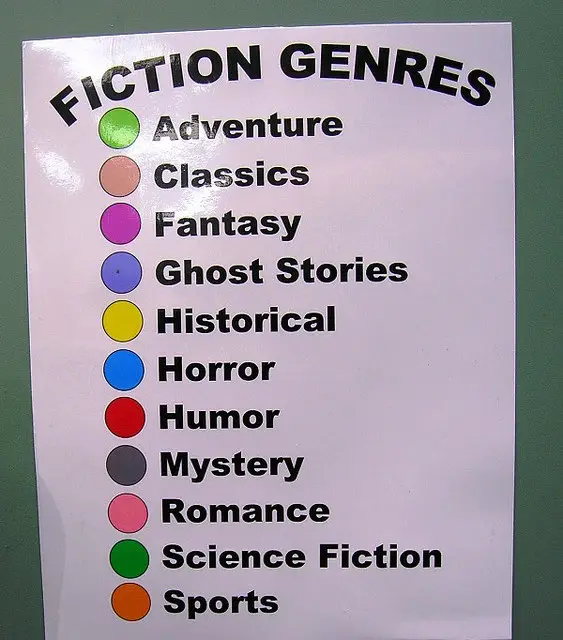
Non-fiction is different. It’s all about ‘Subject’. There’s an international system for classifying non-fiction books, and that accounts for the label that’s always stuck to the spine, with numbers on. Thank goodness, because it means people can go straight to the travel book shelf for a book about Turkey, or to the Tudor History section, or whatever subject they’re interested in, without extensive searching. All this explains why any librarian worth his or her salt will be able to retrieve easily any book once they’ve checked that it’s in the catalogue.
They’re not just somewhere to put things
Shelves. Now there’s a brilliant invention. Perhaps shelves rival the wheel as the most useful thing humankind managed to invent. The defining thing about humans is our impulse to collect. And collections need shelves. They’re not just somewhere to put things, they’re an invitation to sort. There are people who just acquire stuff, because they can’t help themselves, and there are those who just accumulate, because they can’t get organised, or can’t throw anything away, and there are those who collect. They’re the ones who appreciate the beauty of a well-run library.

All those books, in orderly rows, up and down and across, give us the comfortable feeling that there are, at least sometimes, places where everything is findable, and classified, and displayed in a logical way. Librarians are the guardians of order, and the upholders of civilisation over chaos. They’re also, almost without exception, courteous, friendly, enthusiastic, and hard-working. Because those books don’t arrive by themselves on those shelves in that orderly manner. Books are lent and returned, they sometimes need repairing because of over-enthusiastic reading practices, they grow old or tatty, or out-of-date, so they need to be withdrawn at the end of their useful lives, and there’s a constant stream of new arrivals, and there’s always a limited amount of shelf-space. It’s almost a definition of shelves that there’ll never be enough of them in any given situation.
It was like being an artwork archaeologist
So there we were, having to empty a whole library, and the books were removed and placed in piles, in order of pulling from the shelves. Then all the shelves were rebuilt. Then all the books were calmly picked up in the correct order, and returned to the shelves in their new location. It was a miracle of organisation and a thing of beauty to behold and witness. I understood that these librarians live with books, and they understand all of this in a way that my first-time eyes hadn’t realised would be so complex. It was a pleasure to take part in this work.
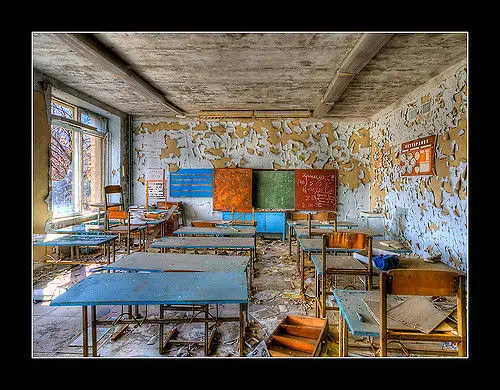
Afterwards, I had another pleasurable job to take part in. When I was a boy, libraries were dignified and serious places, where you did remain silent, and books were perused and borrowed and returned with an almost religious intensity. Children’s libraries then became places with an emphasis more on enjoyment and pleasure, so they hosted many activities, which include artwork, which gets put up on the walls. I was once a Primary School teacher, so I understand the sheer engineering business of putting up and taking down displays on walls. After a while they become encrusted with the remains of displays going back many years, and the Library walls were no different. They had to be tidied up before the arrival of the decorators. It was like being an artwork archaeologist.
There are always two kinds of human
Sometimes I think there are two kinds of human. Those who dislike and avoid boring repetitive drudgery, and those who weirdly volunteer for the most dreadful endless tasks. Sadly, I belong to the second group. I looked at the walls, and I knew how long it would be to clear them of staples and blu-tack and pins and sticky tape, and how boring it would be, and how individual muscles would hurt when used over and over again, when they hardly get any use in ordinary everyday life. And I couldn’t wait to get to it. I don’t know why, but I’m always first to put my hand up and volunteer.
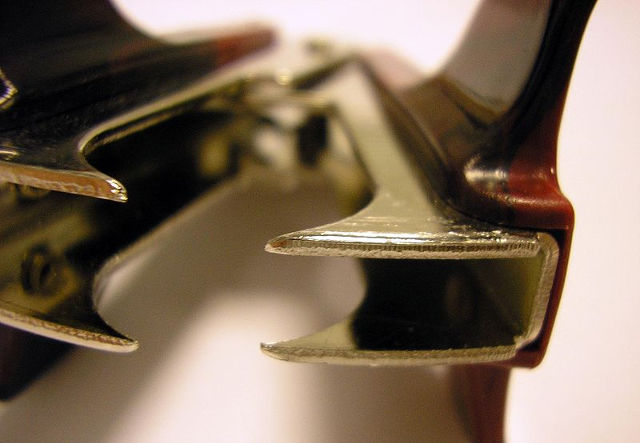
There’s an art to removing staples. Each one provides its own unique challenge, and you just have to start at one corner of the room and work your way, section by section, across and down, and keep going until it’s finished. I wasn’t doing this alone, and I wasn’t expecting to become a hero in this most humble of ways. It was hard, and I gashed my hand and cut my palm and punctured my fingertips several times, and I got blisters on my palms, and my hands look like they’ve been through bramble hedges backwards, and I ache. But I treasure that moment when I climbed off the ladder and saw the ‘after’ picture, with all the walls free from pins and staples. Not because it was finally finished, but because it felt good.
Doing something epic and transforming a mess into order
I remember many times during various jobs, where I volunteered to transfer numbers from one place to another, or add things up laboriously, or add post codes to addresses. And I remember clearing gardens of weeds and brambles too. Back when ‘Bob a Job’ meant something, I knocked on an old lady’s door and she asked me to clear her garden, and I spent all day on it, and in the evening she gave me a bob (old shilling, equivalent to 5p). Even in those days, that was possibly a record for stinginess. But there was still a clear feeling of pleasure in doing something epic and transforming a mess into order.
![]()
I don’t know if this is a character trait or not, or whether it’s a thing to apologise for or to glory in. I do wonder how people can live in terrible messes, and I often have found myself in just such a mess too, with similar feelings of hopelessness as I imagine others feel in similar positions. Many years ago I built my first shed, and set it up for working in, and within a month it was so full of stuff from inside the house that I couldn’t even step over the door sill. I remember that time just shutting the door and going back inside the house. It all seemed too terrible.
The pleasure at the end of the process
So I do understand how it’s possible to get into terrible messes, and I don’t know how you transfer that feeling of helplessness and hopelessness into a dogged determination to do the clearing-out and make the space free and empty again. It may have something to do with having somewhere else to put the stuff, or just throwing it all away. It may have something to do with having help, as in the team of librarians I joined there in the Junior Library. It does feel good, and I do recommend the pleasure at the end of the process as a thing to anticipate whilst getting on with it. And it’s such a relief.
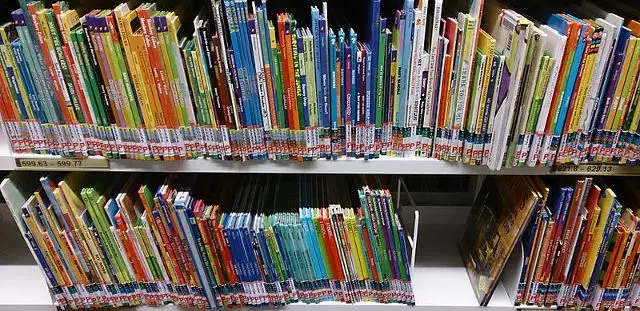
The other thing I know is that Ryde Junior Library will reopen next week, with freshly-painted walls and a thoroughly-cleaned carpet. And I just remembered that all those shelves and books will have to be re-emptied, disassembled, refitted and refilled. Hopefully I’ll have learned enough to be more useful when that happens.
And every time in future that I walk in there, I’ll remember the thrill of all that work, done. Until the next time.
If you have been, thank you for reading this.
Image: Liridon under CC BY 2.0
Image: vblibrary under CC BY 2.0
Image: gpoo under CC BY 2.0
Image: lord_yo under CC BY 2.0
Image: Tim Collins under CC BY 2.0
Image: Maxpixel under CC BY 2.0
Image: ProjectManhattan under CC BY 2.0

